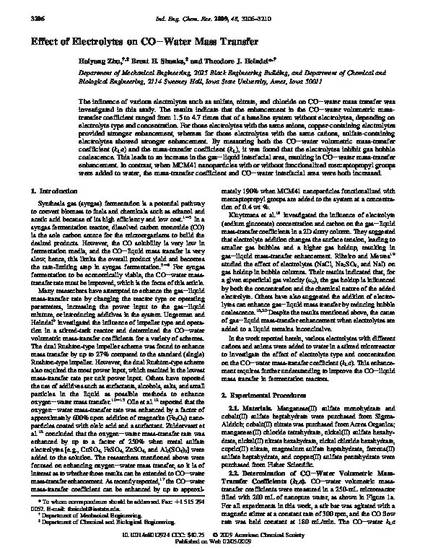
The influence of various electrolytes such as sulfate, nitrate, and chloride on CO−water mass transfer was investigated in this study. The results indicate that the enhancement in the CO−water volumetric mass-transfer coefficient ranged from 1.5 to 4.7 times that of a baseline system without electrolytes, depending on electrolyte type and concentration. For those electrolytes with the same anions, copper-containing electrolytes provided stronger enhancement, whereas for those electrolytes with the same cations, sulfate-containing electrolytes showed stronger enhancement. By measuring both the CO−water volumetric mass-transfer coefficient (kLa) and the mass-transfer coefficient (kL), it was found that the electrolytes inhibit gas bubble coalescence. This leads to an increase in the gas−liquid interfacial area, resulting in CO−water mass-transfer enhancement. In contrast, when MCM41 nanoparticles with or without functionalized mercaptopropyl groups were added to water, the mass-transfer coefficient and CO−water interfacial area were both increased.
Available at: http://works.bepress.com/brent_shanks/35/

Reprinted with permission from Industrial & Engineering Chemistry Research 48 (2009): 3206–3210, doi:10.1021/ie8012924. Copyright 2009 American Chemical Society.